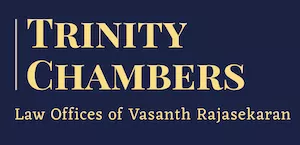Introduction
In a recent ruling, the Calcutta High Court, in Kalpataru Projects International Limited v. Bharat Heavy Electricals Limited (BHEL) [AP-COM No. 94 of 2025], appointed an independent arbitrator under Section 11(6) of the Arbitration and Conciliation Act, 1996 ("A&C Act").
The High Court rejected BHEL's objections regarding limitation and non-joinder of parties, holding that the Petitioner's claims were not ex facie time-barred and that issues concerning the consortium agreement should be decided by the arbitral tribunal. In this article, we navigate through the facts of the case and the findings rendered by the High Court.
Brief Facts
The dispute arose from a Work Order issued to the predecessor-in-interest of Kalpataru Projects International Limited ("Petitioner"). The predecessor company had formed a consortium with Simplex Projects Limited to execute a project for BHEL. Subsequently, following a merger, Kalpataru took over the obligations of its predecessor and continued the work under the consortium framework.
The Petitioner submitted its final bill in July 2020, which remained unpaid despite multiple demands. Attempts at amicable settlement were made at BHEL's insistence, and after discussions in January 2022, BHEL released a partial payment of Rs. 25,14,445/- against the total claim of Rs. 5.52 crore. However, since the entire claim was not resolved, the Petitioner invoked arbitration by issuing a Section 21 notice on 27 October 2023, as per Clause 43.1 of the Work Order.
BHEL objected to the arbitration application, arguing that:
- The claim was time-barred, as the Petitioner should have invoked arbitration within three years from the final bill submission in July 2020.
- The application was defective due to non-joinder of Simplex Projects Limited, which was a member of the consortium that executed the work.
- The dispute resolution clause required that the arbitrator be appointed by BHEL/ In-charge (Region), making the Petitioner's request for an independent arbitrator untenable.
Findings of the High Court
Limitation Does Not Bar the Arbitration Claim
The High Court dismissed BHEL's argument that the application was time-barred. Relying on Arif Azim Co. Ltd. v. Aptech Ltd. [(2024) 5 SCC 313], and Aslam Ismail Khan Deshmukh v. ASAP Fluids (P) Ltd. [(2025) 1 SCC 502], the High Court reiterated that the three-year limitation period for filing an arbitration application begins from the date of failure or refusal to comply with the arbitration notice, not from the date of contract completion. The High Court noted that the parties engaged in settlement discussions until January 2022, during which a partial payment was made, extending the limitation period. Since the arbitration notice was issued on 27 October 2023, and the Section 11 application was filed within three years of the last settlement attempt, the claim was not ex facie time-barred.
Non-Joinder of Consortium Member Not a Bar to Arbitration
The High Court rejected the argument that Simplex Projects Limited's absence made the petition defective. It reasoned that:
- As per the consortium agreement, Kalpataru (formerly JMC) was the lead member and responsible for executing the major part of the contract.
- All communications regarding the work were made between BHEL and JMC/ Kalpataru, confirming its standing to initiate arbitration.
- The arbitral tribunal would be the proper forum to assess whether Simplex Projects Limited's participation was necessary for resolving the disputes.
Arbitration Clause Favouring BHEL Held Invalid
The High Court held that Clause 43.1 of the Work Order, which allowed BHEL to unilaterally appoint the arbitrator, was no longer legally valid. Citing Central Organisation for Railway Electrification v. ECI SPIC SMO MCML (JV) [2024 SCC OnLine SC 3219], and Perkins Eastman Architects DPC v. HSCC (India) Ltd. [(2020) 20 SCC 760], the High Court ruled that such unilateral appointment mechanisms violate the principle of arbitrator neutrality.
Appointment of Independent Arbitrator
Given the invalidity of the original arbitration clause and BHEL's failure to appoint an arbitrator, the High Court exercised its authority under Section 11(6) of the A&C Act to appoint former Chief Justice of the Gujarat High Court, as the arbitrator.
The High Court directed that:
- The arbitrator shall fix his own remuneration as per the Fourth Schedule of the A&C Act.
- The appointment is subject to compliance with Section 12 of the A&C Act, ensuring no conflict of interest.
- The arbitral tribunal shall decide all claims, counterclaims, and objections, including those related to limitation and consortium participation.
Comment
This judgment reinforces the fundamental principles of arbitration law by preventing technical objections from obstructing legitimate claims. The High Court's approach aligns with the pro-arbitration stance of Indian judiciary, ensuring that disputes are resolved efficiently rather than being stalled due to procedural roadblocks.
By ruling that settlement discussions and partial payments can extend limitation, the High Court clarifies an important aspect of arbitration law, preventing parties from unfairly using delay as a defense. Additionally, the rejection of unilateral arbitrator appointment clauses reaffirms the judiciary's commitment to ensuring neutral and fair arbitral proceedings.
The content of this article is intended to provide a general guide to the subject matter. Specialist advice should be sought about your specific circumstances.



